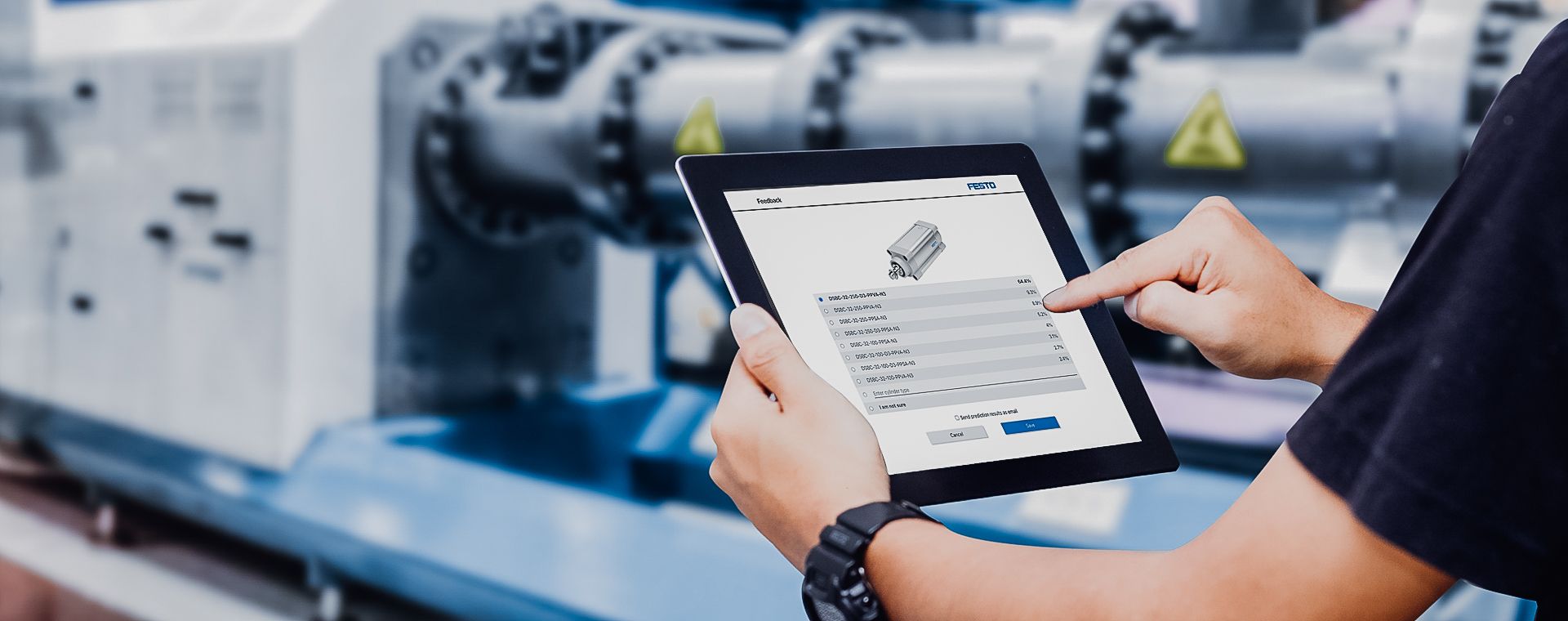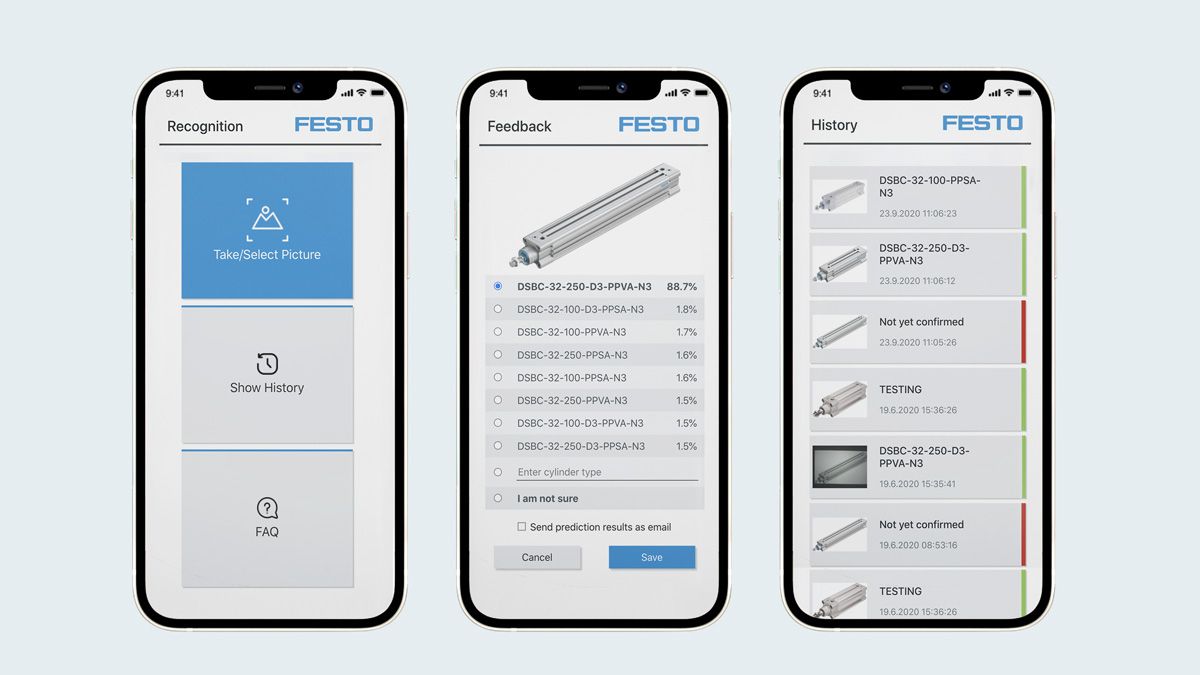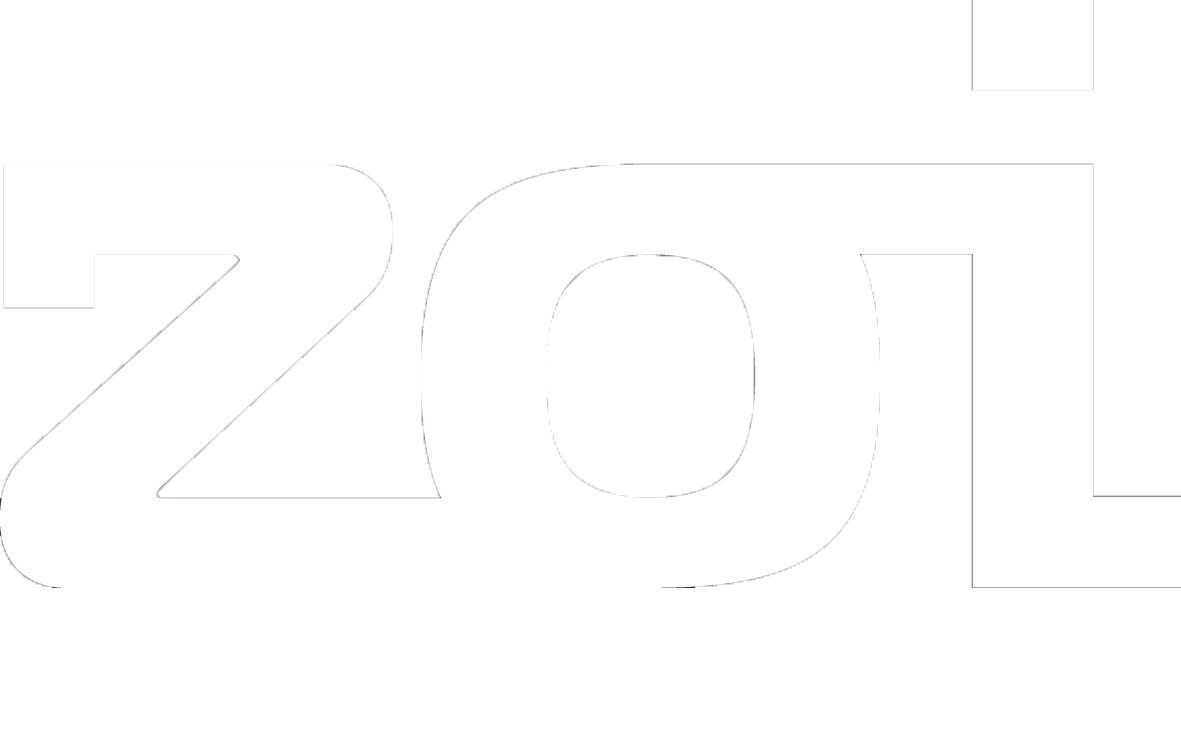Festo
PRODUCT IDENTIFICATION APP WITH GOOGLE VISION
INDUSTRY
Manufacturing
CLOUD PROVIDER
Google Cloud

As a global player in pneumatic and electric automation technology with roughly 33,000 catalog products and several hundred thousand variants, the Festo Group faced a technological challenge. The self-imposed goal of one of the world's leading companies in the industry: to actively support its factory and process automation customers in achieving maximum productivity and competitiveness. Fast identification of products is possible today through a digital process and experts. The increase in efficiency for both customers and Festo is supported by the on-demand use of the Google Vision application!
This is a paragraph. Writing in paragraphs lets visitors find what they are looking for quickly and easily.
This is a paragraph. Writing in paragraphs lets visitors find what they are looking for quickly and easily.
This is a paragraph. Writing in paragraphs lets visitors find what they are looking for quickly and easily.
This is a paragraph. Writing in paragraphs lets visitors find what they are looking for quickly and easily.
PRODUCT RECOGNITION IN 2S
FASTER IDENTIFICATION OF PARTS INCREASES PRODUCTIVITY
DECREASED ORDERING TIME FOR SPARE PARTS
ML MODEL IMPROVES RELIABILITY OF THE APPLICATION
PRODUCT IDENTIFICATION IS CRUCIAL
Festo is an absolute pioneer in the field of automation technology. The company's technology is used in most machine installations worldwide. The group offers its customers an immense range of products in pneumatic and electric automation technology. Customers have a choice of over 33,000 physical components for a wide variety of plant systems.
With such a vast amount of products in use around the world, it is often a challenge for customers, as well as Festo's customer support, to identify the exact type and variant of a product. However, this identification is crucial to correctly exchange or order replacement parts and to receive helpful support in case of problems.
Each product has a unique product label for identification purposes. Unfortunately, these labels are often unreadable because of obstruction in the production line or alterations due to dirt and abrasion. This makes it difficult to provide quick information. In these cases, experts have to invest a lot of time and even dismantle numerous components to obtain the desired information. Production lines coming to a standstill are the worst-case scenario and must be avoided at all costs. A digital solution with the latest machine learning technologies must be created to minimize the effort for everyone involved and increase speed and productivity.
Zoi designed the architecture of the backend API for Festo in Python using cloud source repositories as a version control system. This was built with Cloud Build and deployed via Cloud Run. The same stack is used to run the progressive web application (PWA), developed with React, with a responsive layout for mobile devices.
Product recognition in 2 seconds: The solution provides a fast and hurdle-free way for the company to instantly identify products through images, creating benefits for its production and service staff, as well as all customers. By using PWA technology, the application can be accessed from anywhere and on any device. Typical use cases are triggered by an irregular event, often associated with increased urgency. This is where the solution helps significantly, both through speed and by avoiding human error.
The application has the potential to increase productivity in Manufacturing plants since a product and its variants can now be identified quickly and reliably even if the product label is not legible. Instead of reading and manually entering the product type, time is saved and media breaks are minimized by conveniently using a smartphone camera and OCR for text recognition. Disassembling components of a production line is a thing of the past with the use of the app.
RECOGNITION AT THE TOUCH OF A BUTTON WITH GOOGLE VISION
In preparation for the project, several machine learning services for image recognition were tested and compared in terms of quality and project goals. The services offered by leading public cloud providers showed relevant differences, but the Cloud AutoML Vision service from Google Cloud Platform was the final winner here. The icing on the cake was that Google Cloud Platform (GCP) can provide the entire service infrastructure required to implement the desired solution and further its development in the long term.
Zoi already supports the global market leader Festo in their IT projects by providing technical expertise in cloud infrastructure, solution architecture, and software development. The IT consulting company was able to offer the group in-depth expertise in building an environment for a powerful machine learning model, including a modern application for using and training the model. The main requirements were perfectly aligned with Zoi's expertise: agile project design, native cloud architecture, machine learning experience, and the ability to deliver a modern, valuable user interface.
The vision was to provide customers and Festo employees with a mobile application that would recognize the exact product type at the touch of a button. Simply taking a photo is all it would take for users to receive instant identification of the corresponding product.
To evaluate this idea, the first step was to initiate a proof of concept together with Zoi, focusing on the DSBC cylinder product family. This product family is used internally by Festo experts and provides the ideal basis for training the application. The main components here are an ML-based core for text recognition via the Cloud Vision API and image recognition via Cloud AutoML Vision. The web UI also plays an important role by delivering results and providing feedback.
Initially, the Cloud AutoML Vision model was trained with product images generated using existing CAD models. Using the developed Progressive Web App, Festo experts continuously delivered more training data to improve the ML model.
A PROGRESSIVE WEB APP THAT’S ACCESSIBLE FROM ANYWHERE AND ON ANY DEVICE
The user-centric solution for Festo works as follows: The user logs in with an end device of his choice on the web app developed by Zoi. Firebase is used for authentication. With just one click, the user uploads the Festo product photo for identification. The image is stored on cloud storage, registered in a cloud SQL database, and sent to the two recognition services. Their results from the queries are continuously stored in the database. The user receives a list of possible product types, sorted by their scoring, and can also input their feedback by confirming one of the results or specifying the correct product type in the free text field.
Architecture diagram, including Firebase, Cloud Vision API, and Cloud AutoML Vision as core Google technologies.

Beginning with the circle of Festo experts, the application is being qualified step by step for use throughout the group.

Product recognition made easy: The progressive web app allows users to easily and quickly identify a product via smartphone.

Not only can time be saved, but the new solution also has a significant monetary impact. In addition to production line downtimes, the ordering of spare parts is also shortened.
Another highlight in the context of the project implementation that should not go unmentioned at this point: By using dedicated CAD data, the company has managed to achieve further development of the training model with only 10% of the data that would otherwise be required. As a result, the app is getting smarter at a faster and cheaper rate than traditional ML processes.
Data is currently being collected via Festo experts to improve the ML model. The plan is to roll out the solution globally once the required quality of results has been achieved. Until then, Festo identifies and uses internal process steps to obtain more product images to prospectively expand the range of product families that the solution can cover piece by piece.
But that's not all: The PWA will be enriched with new user-oriented features as the project progresses. Helpful information about the product, such as data sheets and manuals, along with a convenient entry into the ordering process are just two examples of scenarios envisaged here. In conclusion, it can be said that the Festo Group has taken a further step towards digital transformation with the digitization of its product identification.
ABOUT FESTO
Festo is both a global player and an independent family-owned company based in Esslingen am Neckar, Germany. The company supplies pneumatic and electric automation technology to 300,000 customers in over 35 industries and more than 175 countries. The group's turnover is 3.07 billion euros – generated by companies based in 61 countries.
The Progressive Web App is state-of-the-art, yet easy to use. Thanks to this Google technologies-based application, our customers will soon be able to receive instant identification of their products at the push of a button. With worldwide access from almost any end device, it’s a milestone in the digitalization of our customer support.
Alfred Hagmeyer
Head of Technical Product Support at Festo
CAROUSEL FILTER SETUP
CASES
Here are a few examples of how we have successfully supported our Manufacturing customers.
This is a paragraph. Writing in paragraphs lets visitors find what they are looking for quickly and easily.
This is a paragraph. Writing in paragraphs lets visitors find what they are looking for quickly and easily.
This is a paragraph. Writing in paragraphs lets visitors find what they are looking for quickly and easily.
This is a paragraph. Writing in paragraphs lets visitors find what they are looking for quickly and easily.
LET’S EXCHANGE IDEAS
Because you could change direction much faster than you think.



